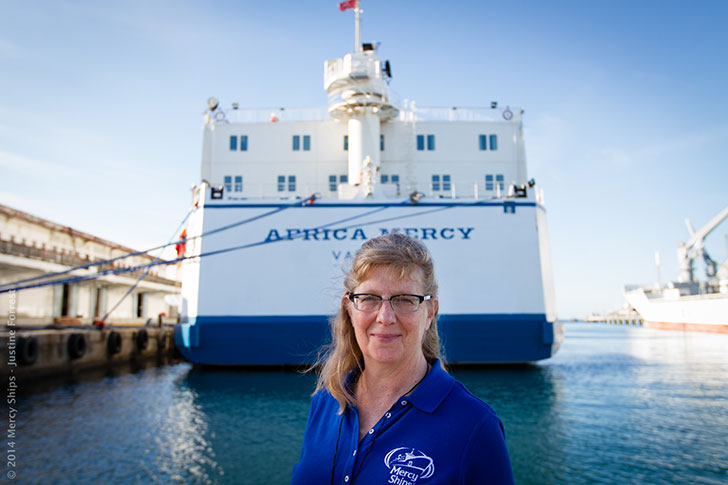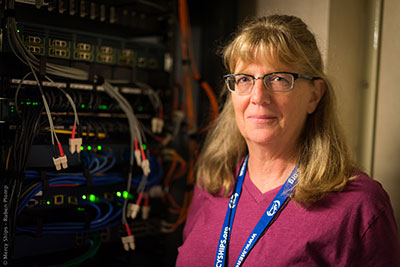

Holly Gage dedicates vacation time to serving others

Holly Gage used her project management skills to help with computer support on the African Mercy Ship.
Interview by Carole Johnson, university news and communications, and Mekenna Sandstrom, intern
Project manager Holly Gage loves adventure. She recently returned home after spending three months serving on The African Mercy, a hospital ship currently ported in Madagascar. The organization called Mercy Ships provides free surgeries for the world’s poorest people utilizing state of the art surgical facilities on the ship.
Gage, who works in IT services, used her project management skills in the ship’s information technology department. Gage didn’t think twice about giving up her vacation time to volunteer for the charity organization, where everyone on board is a volunteer and is required to pay for their own transportation as well as room and board while serving on the ship.
Q: How did you get involved with your trip to Madagascar?
A: I do a lot of service work. I’d been working with Habitat (for Humanity), but my knees just don’t like scaffolding, and my body doesn’t like 100-degree temperatures. I heard about this organization called Mercy Ships, and it sounded interesting.
However, I learned that the shortest amount of time I could go is 12 weeks. After speaking with management and checking with human resources, I discovered that I could use my vacation time. They were all very supportive, and in fact IT services held a fundraiser, making a donation toward my expenses.
Q: What exactly did you do on the ship?
A: The ship is a state of the art, first world hospital. It has 450 volunteers on board, five operating rooms and about 84 ward beds. I worked in their IT department at the help desk. A portion of my job included answering simple technical help calls, but my Miami project management skills did come into play. I realized their un-answered ticket requests were filling up the help desk request queue. I established a system so they could prioritize the tickets. When I left, they were down to a manageable number. In addition, I decommissioned at least three pallet-loads of old computers, lightening the ship’s load and creating more storage in the ship.
Q: What kinds of procedures did doctors perform on board?
A: It’s a surgical ship providing free care. Many of the patients they see need general surgeries for many ailments, but most common are surgeries for cataracts, clubfeet and tumors. Facial reconstruction is common as many suffer from untreated tumors. The organization also focuses on women’s complications that occur after pregnancies. In fact there are 50,000 known cases where women are in need of surgery. The organization is working to develop clinics to help with the need, as well as clinics for dental work.
Q: Would you go back?
A: I would return instantly if I could. I’m saving up my vacation for another trip. Working on the ship is fantastic and the people are great to work with. It gives you a different perspective on the concept of work because we are all volunteers, not getting paid. It also gives you another perspective of living and working in a poor country.
